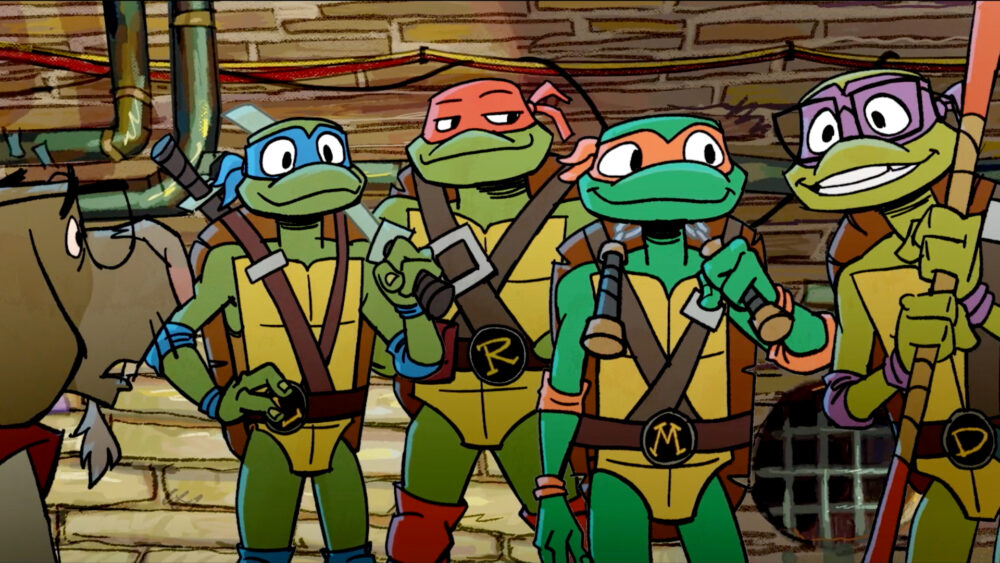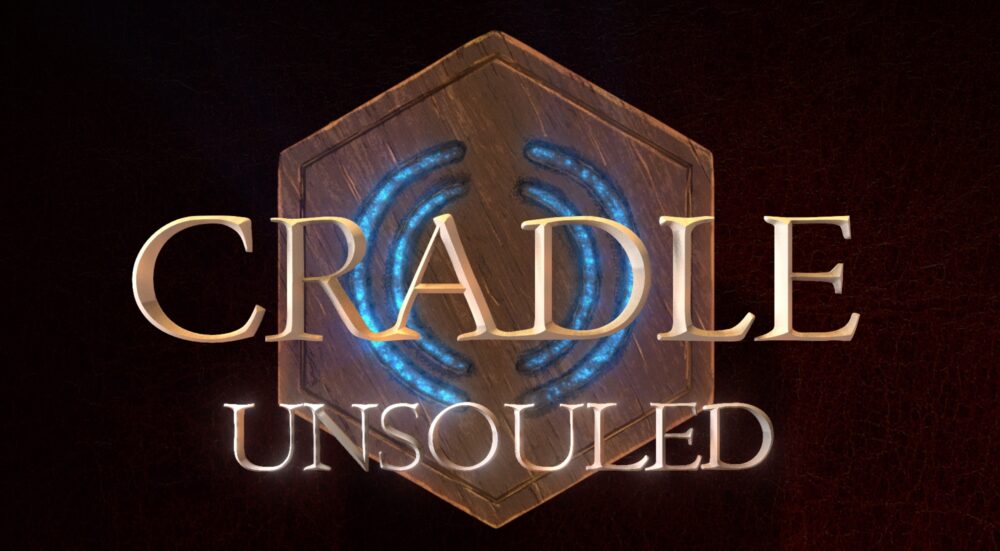Lost in Space returns! Or is renewed, revamped, remade, something like that. After the original run of the show in the 60’s, and the 1998 movie starring a bunch of familiar faces, this new show breathes new life into an enduring classic, so let’s all get lost in space with our pals the Robinsons!
‘Swiss Family Robinson’ they sure ain’t. All the same familiar names are there: Maureen and John, the parental units; Judy and Penny and Will, their children. But each character has been upgraded and given a depth we honestly haven’t seen in those previous incarnations. Like with real life, we lay the blame and begin with the parents, John and Maureen Robinson.
Maureen (Molly Parker) I’ve taken to calling Mama Bear, and as the show goes on, it’s quite easy to see why. Poor beleaguered John (Toby Stephens) is a soldier, a very good one as it turns out, but because life on planet Earth is rapidly degrading, he has to go out and keep the peace more often than not, which means Maureen is left to run the household.
We see clearly in flashbacks in this first episode, that relations between Maureen and John are more than strained, they’re practically nonexistent. Of course Maureen is a scientist, but like any mother bear her main concern is for her children’s lives, so if anything threatens that, including but not limited to their own father, Mama Bear will not let anything stand in her way of remedying that quickly and brutally. One would think, given the military training John went through and his soldiering skills, that he would be the one to fear in the family – oh no, it’s the Mama Bear.
The children all have their own issues, as we clearly see from this very first episode. Judy (Taylor Russell) is already a credit to her families survival, brave and reckless and always wanting to prove herself to her mother, while Penny (Mina Sundwall) is struggling along, trying to decide who and what she wants to be inside the Robinsons.
And of course Will (Maxwell Jenkins), the smartest and youngest of the bunch, he wants to be a scientist too, but both his parents have their own ideas for what Will should be, and it isn’t until they get stuck on a strange planet together that these demands begin being presented.
So here we are, lost in space on a planet other than Earth, with the Jupiter 2 spaceship, as part of a fleet of other Jupiter spaceships. The Jupiter 2 crashed into the ice and just sank like a stone, and John’s demands that his children do their level best to help unearth (bad pun) the ship, which inevitably leads to two of his kids getting into serious trouble.
Judy went to save her little brother and of course got literally stuck, and though Will very smartly suggested using the surrounding environment to get Judy out, that idea leads to him and John getting separated. But that turns out to be the most fortuitous thing that could’ve happened, because despite leaving Will on his own to go and save his eldest daughter first, Will does fairly well on his own, thank you very much.
Or, mostly on his own. Will, the youngest and perhaps the bravest, and kindest for that matter, of the Robinsons, proves that friendly overtures really can be the one thing that saves humanity from destruction by, well, other species. The Robot, whom we were all missing from the Jupiter 2, has finally made its appearance, and hoo boy did he/it ever get an upgrade, like insanely so. Will Robinson, alone and frightened in a potentially hostile land, genuinely helped a stranger, and the Robot apparently comprehends enough to return that in kind. Remember that, for it will become vitally important.
Get yourself lost with the Robinsons on the brand new Lost in Space, on Netflix now!

Events
Paramount+ Reveals Official Main Title Sequence for the Upcoming Series TALES OF THE TEENAGE MUTANT NINJA TURTLES

During the TALES OF THE TEENAGE MUTANT NINJA TURTLES panel earlier today at San Diego Comic Con, Paramount+ revealed the official main title sequence for the series. The sequence is composed by EMMY® nominee, Matt Mahaffey, known for his work on Sanjay and Craig, Rise of the Teenage Mutant Ninja Turtles, and Rise of the Teenage Mutant Ninja Turtles: The Movie and much more.
From the studios of the Mutant Mayhem film, the all-new Paramount+ original series TALES OF THE TEENAGE MUTANT NINJA TURTLES explores the adventures of everyone’s favorite pizza-loving heroes as they emerge from the sewers onto the streets of NYC. Leo, Raph, Donnie and Mikey are faced with new threats and team up with old allies to survive both teenage life and villains lurking in the shadows of the Big Apple. The series is produced by Nickelodeon Animation and Point Grey Pictures.
TALES OF THE TEENAGE MUTANT NINJA TURTLES is executive produced by Chris Yost (The Mandalorian, Thor: Ragnarok) and Alan Wan (Blue Eye Samurai, Rise of the Teenage Mutant Ninja Turtles, Teenage Mutant Ninja Turtles [2012 Series]). Production is overseen for Nickelodeon by Claudia Spinelli, Senior Vice President, TV Series Animation, Nickelodeon, and Nikki Price, Director of Development and Executive in Charge of Production.
In addition to the upcoming new series, stream all things Turtles on Paramount+.
Events
Comic-Con 2024: Those About to Die Activation
Events
DISNEY+ CASTS DANIEL DIEMER AS FAN-FAVORITE ‘TYSON’IN SEASON TWO OF “PERCY JACKSON AND THE OLYMPIANS”

in Hall H at San Diego Comic-Con, Rick Riordan and Disney+ revealed that Daniel Diemer (“Under the Bridge”) will star as fan-favorite cyclops “Tyson” in the epic adventure series “Percy Jackson and the Olympians.” Diemer joins Walker Scobell (Percy Jackson), Leah Sava Jeffries (Annabeth Chase) and Aryan Simhadri (Grover Underwood) as a series regular. The Disney+ Original series from Disney Branded Television and 20th Television will start filming its second season next week in Vancouver.
Season two of “Percy Jackson and the Olympians” is based on the second installment of Disney Hyperion’s best-selling book series titled “The Sea of Monsters” by award-winning author Rick Riordan. In the new season, Percy Jackson returns to Camp Half-Blood one year later to find his world turned upside down. His friendship with Annabeth is changing, he learns he has a cyclops for a brother, Grover has gone missing, and camp is under siege from the forces of Kronos. Percy’s journey to set things right will take him off the map and into the deadly Sea of Monsters, where a secret fate awaits the son of Poseidon.
Diemer stars as Tyson – a young Cyclops who grew up all alone on the streets, and finds it difficult to survive in the human world. Shy and awkward, with a heart almost as big as he is, Tyson soon discovers that Poseidon is his father, which means Percy Jackson is his half-brother… and that Tyson may have finally found a home.
Diemer recently starred in the Hulu limited series “Under the Bridge” based off the critically acclaimed book of the same name and a tragic true story of a missing teen girl in Vancouver in 1997. He will next star in the indie “Thug” opposite Liam Neeson and Ron Perlman for director Hans Petter Moland. Daniel was recently seen as the lead in the indie “Supercell” opposite Alec Baldwin and Skeet Ulrich and the lead in the film “Little Brother” opposite Phil Ettinger and JK Simmons. Daniel can also be seen in the Netflix series “The Midnight Club” and recently starred as the male lead in the breakout hit Netflix feature “The Half Of It” from producer Anthony Bregman and director Alice Wu. He is a graduate of Victoria Academy of Dramatic Arts in Vancouver.
Created by Rick Riordan and Jonathan E. Steinberg, season two of “Percy Jackson and the Olympians” is executive produced by Steinberg and Dan Shotz alongside Rick Riordan, Rebecca Riordan, Craig Silverstein, The Gotham Group’s Ellen Goldsmith-Vein, Bert Salke, The Gotham Group’s Jeremy Bell and D.J. Goldberg, James Bobin, Jim Rowe, Albert Kim, Jason Ensler and Sarah Watson.
The first season of “Percy Jackson and the Olympians” is available on Disney+
-

 Interviews2 days ago
Interviews2 days agoInterview With Heroes & Villains Creative Director Doug Johnson
-

 Streaming2 days ago
Streaming2 days agoApple TV+ announces season two for delightful kids and family series “Camp Snoopy
-

 Events2 days ago
Events2 days agoThat’s My E Coverage Of The Adult Swim’s Pirate Parrrty
-

 Events19 hours ago
Events19 hours agoParamount+ Reveals Official Main Title Sequence for the Upcoming Series TALES OF THE TEENAGE MUTANT NINJA TURTLES
-

 Events22 hours ago
Events22 hours agoDISNEY+ CASTS DANIEL DIEMER AS FAN-FAVORITE ‘TYSON’IN SEASON TWO OF “PERCY JACKSON AND THE OLYMPIANS”
-

 Events22 hours ago
Events22 hours agoComic-Con 2024: Those About to Die Activation
-

 Interviews23 hours ago
Interviews23 hours agoComic-Con 2024: Will Wight’s Cradle






